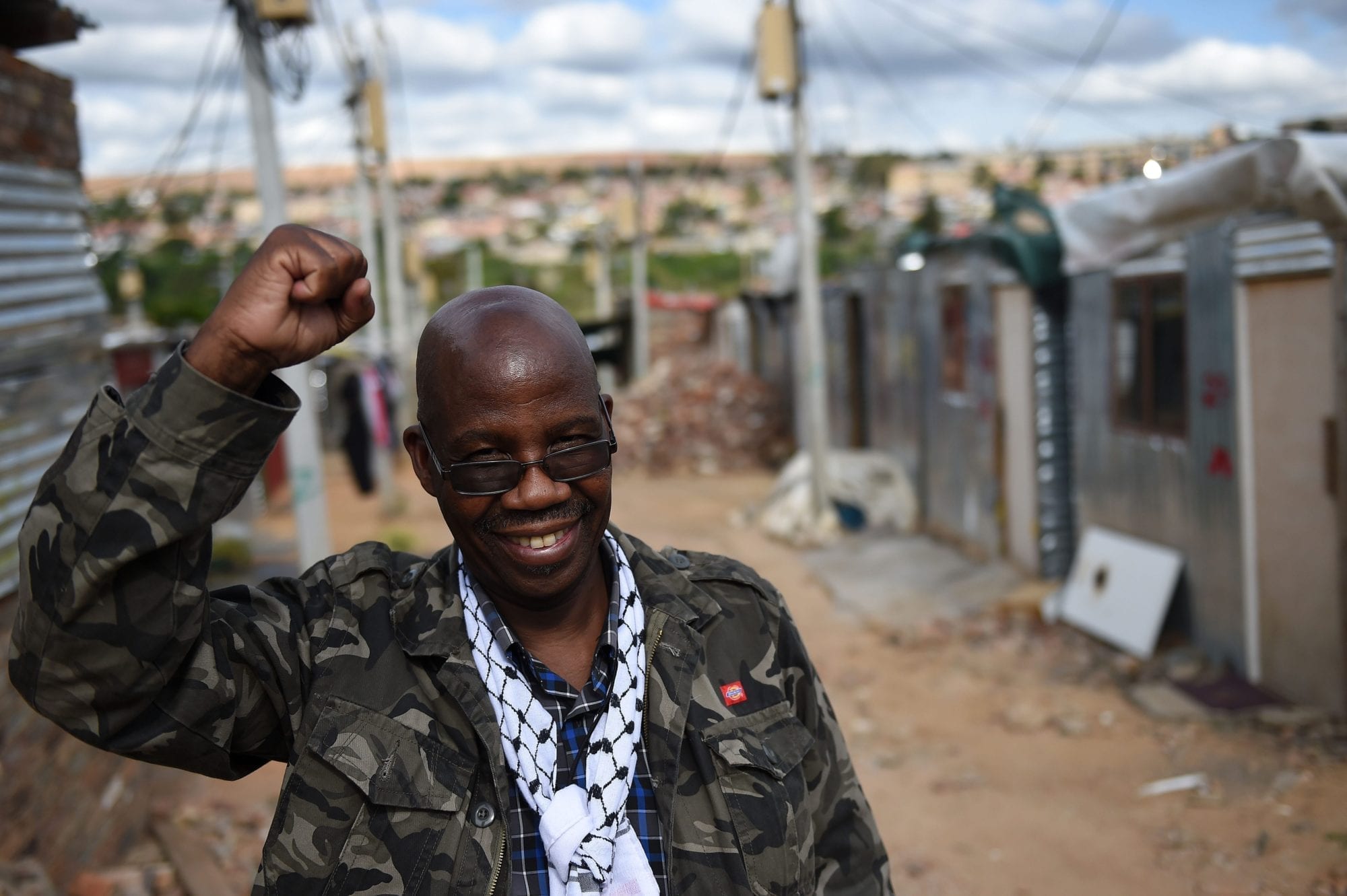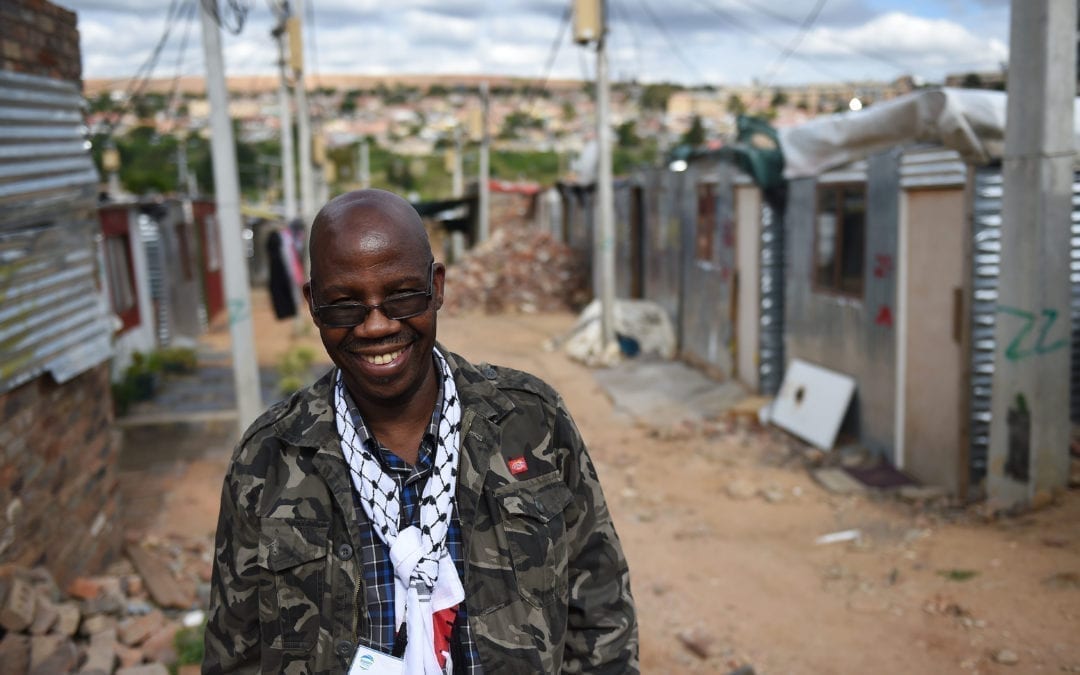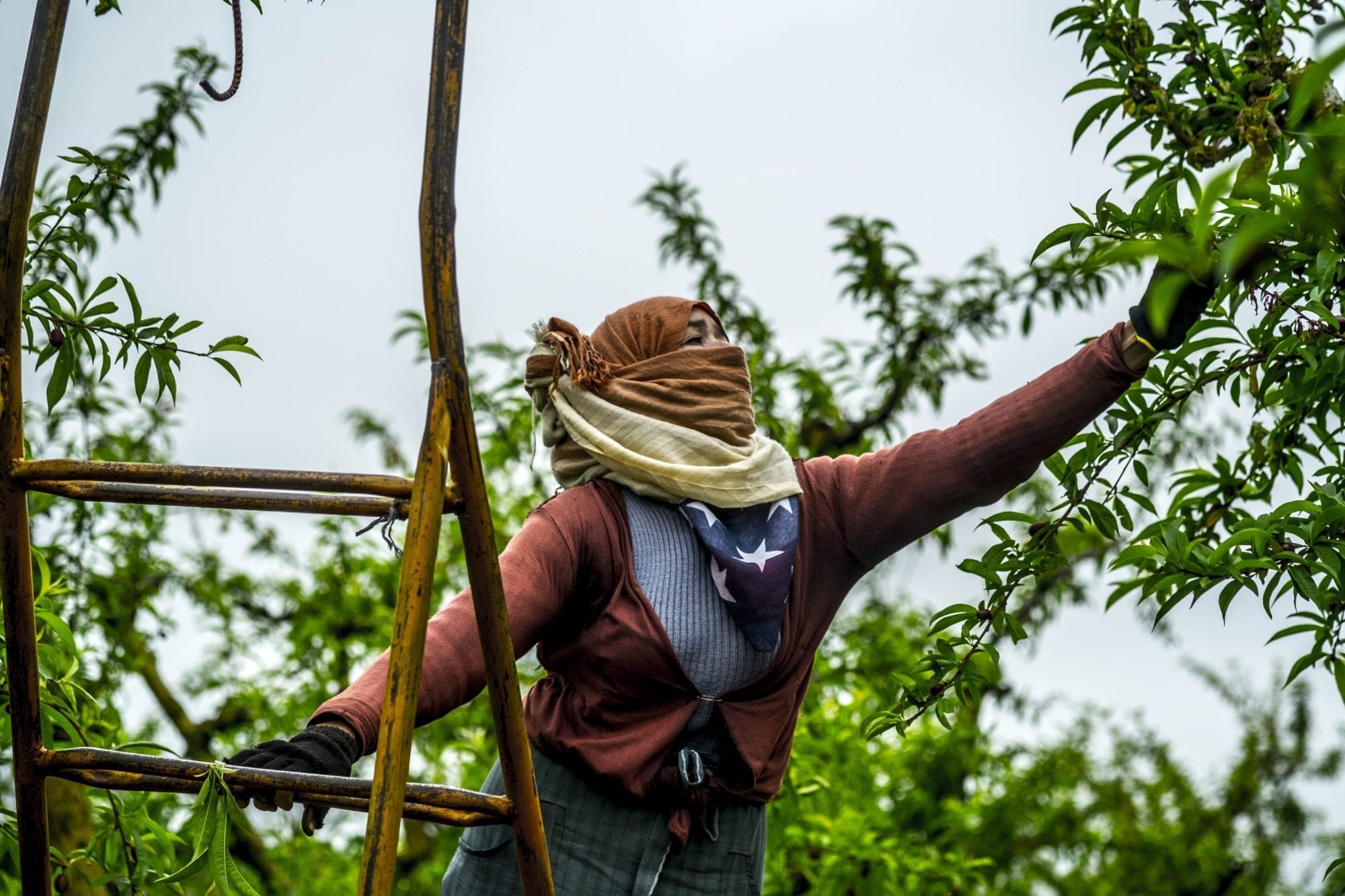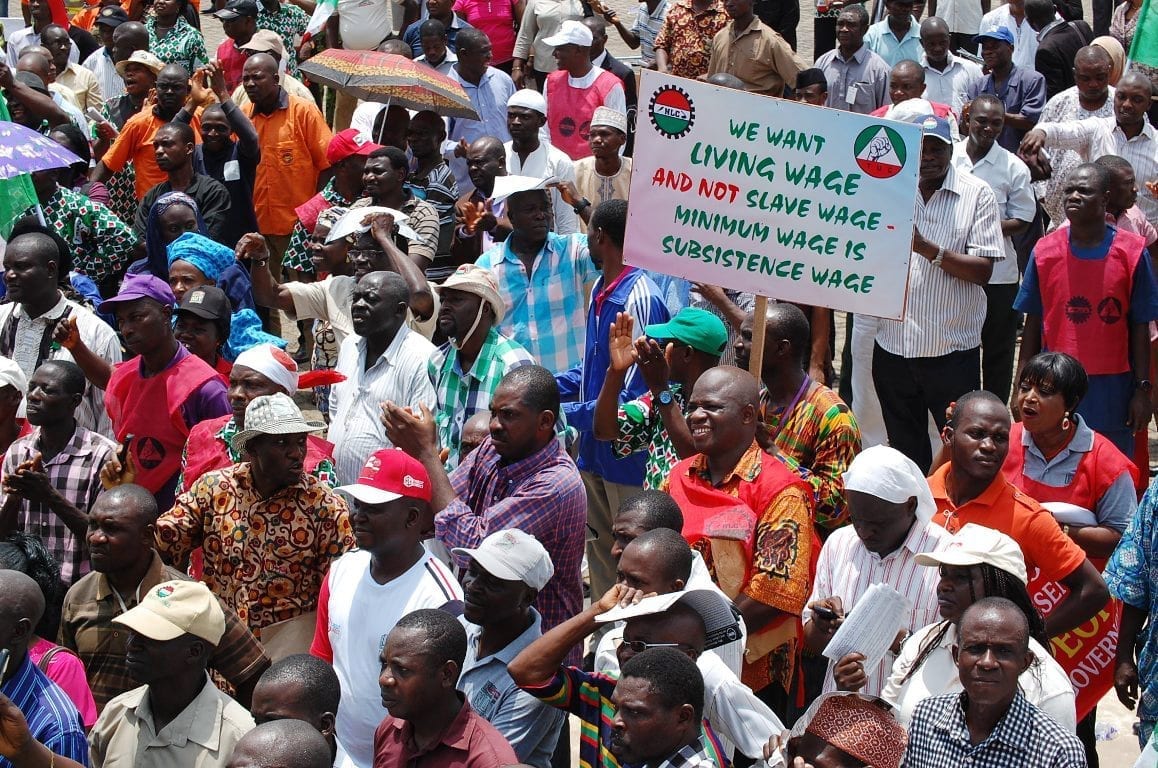
Oct 4, 2018
When Joe Montisetse came to South Africa from Botswana to work in gold mines in the early 1980s, he saw a black pool of water deep in a mine that signified deadly methane. Yet after he brought up the issue to supervisors, they insisted he continue working. Montisetse refused.
Two co-workers were killed a few hours later when the methane exploded.
Millions of jobs around the world do not offer safe and healthy workplaces—nor do they provide wages that enable workers to support themselves and their families or social protections and the sense of dignity that allow workers to enjoy the benefits of their own hard work.
To highlight the lack of decent work, each year on October 7, unions and their allies mark World Day for Decent Work. This year, they are calling for minimum wage-floors sufficient to ensure a decent standard of living and the right of all workers to join a union and bargain collectively.
Today, Montisetse is newly elected president of the National Union of Mineworkers, a position he achieved after helping form a local union at the gold mine soon after his co-workers’ deaths. After they formed the union, workers were safer, he says.
“We formed a union as mine workers to defend against oppression and exploitation.”
This year, the 10th anniversary of the World Day for Decent Work, workers like Montisete highlight the importance of the freedom to form unions and bargain collectively—fundamental human rights that enable workers to achieve decent work by joining together and successfully challenging global corporate practices that too often, risk lives and livelihoods.

Oct 4, 2018
When Joe Montisetse came to South Africa from Botswana to work in gold mines in the early 1980s, he saw a black pool of water deep in a mine that signified deadly methane. Yet after he brought up the issue to supervisors, they insisted he continue working, but Montisetse refused.
Two co-workers were killed a few hours later when the methane exploded.
Today, Montisete is newly elected president of the National Union of Mineworkers, a position he achieved after helping form a local union at the gold mine soon after his co-workers’ deaths. After they formed the union, workers were safer, he says.
“We formed union as mine workers to defend against oppression and exploitation.”

Oct 3, 2018
A survey conducted this year by the Kyrgyzstan Federation of Trade Unions (KFTU), including unions representing mining and construction workers, found that laws against child labor in the country are inadequate and implementation is uneven, resulting in more than 250,000 children being subjected to hazardous work as recently as 2014—10 years after the country ratified the International Labor Organization convention for elimination of the worst forms of child labor. The KFTU’s survey contributed to a scheduled ILO review of core labor standards in the country.
“The engagement of underage citizens of our republic in the worst forms of child labor is an urgent problem,” concluded the KFTU.
Through interviews conducted by Insan Leilek Social Foundation in Sulyukta this year, supported by the Solidarity Center, KFTU found that many children in the area began working in mining as early as age 8, to help support their families. These children, says the KFTU, are denied a complete education, suffer “abusive treatment” and deteriorated health because of inadequate medical care and lack of protection by government agencies.
Mubarak, an 11-year-old girl living in Ak-Turpak village, said about her neighbor: “[He] on purpose summons all the neighboring children to work in his rice paddies. In the rice fields they stand up to their knees in water all day.”
The greatest contributor to child labor, says the KFTU, is lack of enforcement of laws in the informal economy and agriculture. Children are most commonly found working in street trading, domestic labor, cottage industries and agriculture, especially the cultivation of cotton, rice and tobacco.
A 2014 medical study cited by the KFTU found that 8- to 14-year-old market workers on average lifted and hauled more than 1,717 pounds per day, while 15- to 16-year-old children handled an average of almost 3,000 pounds per day.
Nearly half of the children in the countryside (48.6 percent) work, according to government statistics, and the jobs are often hazardous. Children in fields are exposed to pesticides and chemical fertilizers without protective clothing or safe-handling protocols. Citing a 2017 report by the Office of Akyikatchi (Ombudsman) of the Kyrgyz Republic, KFTU describes how children engaged in cotton cultivation that year spent more than 90 percent of their 10- to 12-hour workday in a bent position, with each child bending an average 9,000 times per day. Children engaged in rice cultivation spent more than 70 percent of their 10- to 12-hour workday with the upper body bent, with each child bending an average 19,440 times per day.
To combat the worst forms of child labor, KFTU recommends that the government create a dedicated state program for eliminating the worst forms of child labor—one which welcomes input from civil society. Other recommendations include governmental monitoring of child labor, increased legal penalties for violation of child labor laws, a government-funded campaign to educate citizens about the harmful effects of child labor and the creation of a coordinating council headed by high-ranking government officials of the Kyrgyz Republic.
The survey resulted from a Solidarity Center training for KFTU affiliates on international labor standards, during which participants developed an action plan for submitting workers’ commentary on child labor in Kyrgyzstan to the ILO.
Of the 152 million children forced to work around the world, nearly half—73 million—are engaged in hazardous work.

Sep 24, 2018
Farmworker rights advocates, policymakers and agricultural workers from Mexico, Morocco, Tunisia and the United States are set to share strategies to build worker power, create decent work in the fields and demand greater justice across global food chains in Los Angeles October 11.
The conference, “Realizing a More Fair Global Food Supply Chain,” will explore farmworker organizing strategies, alliances to support worker rights across the food chain, legal initiatives to ensure decent work and the importance of workers in the advancement of sustainability and justice as our food moves from farm to table.
The event, which takes place Thursday, October 11, 2018, at the UCLA Downtown Labor Center, 675 S. Park View St, Los Angeles, CA 90057, is sponsored by the Food Chain Workers Alliance, Solidarity Center and UCLA Labor Center.
Agenda
8:30 a.m. –9:00 a.m.
Continental breakfast
9:00 a.m. – 9:30 a.m.
Opening and welcome
- Art Pulaski, Executive Secretary-Treasurer and Chief Officer, California Labor Federation.
- Kent Wong, Director, UCLA Labor Center
- Shawna Bader-Blau, Executive Director, Solidarity Center
9:30 a.m.– 11:00 a.m.
Building Power in the Fields
Union activists from Mexico, Morocco and Washington state will share farmworker organizing strategies.
- Ramon Torres, President, Familias Unidas por la Justicia (Burlington, WA)
- Saida Bentahar, Collective Bargaining Committee, Workers Democratic Federation (CDT, Morocco)
- Abelina Ramirez Ruiz, Secretary of Gender Equality,
National Independent and Democratic Union of Farmworkers (SINDJA, Mexico)
Moderator: Gaspar Rivera-Saldago, UCLA Labor Center
11:00 a.m. – 11:15 a.m.
Coffee break
11:15 a.m.– 1:00 p.m.
Strategy Session
Worker rights and sustainable food advocates will examine models of cooperation and strategies to strengthen agricultural workers through alliances across the food chain.
• Joann Lo, Co-Director, Food Chain Workers Alliance (Los Angeles, CA)
• Clare Fox, Executive Director, Los Angeles Food Policy Council
• Ryan Zinn, Regenerative Projects Manager, Dr. Bronner’s
Moderator: Robert Egger, President, LA Kitchen
1:00 p.m. – 1:30 p.m.
Lunch (catered, on location)
1:30 p.m. – 3:00 p.m.
Strategy Session
Panelists will offer a global perspective on legal initiatives and strategies to support decent work and rights for workers in agriculture.
• Sami Tahri, Member-Executive Office, UGTT (Tunisian labor federation)
• Adrienne DerVartanian, Director of Immigration and Labor Rights, Farmworker Justice (Washington, DC)
Moderator: Jeff Vogt, Director, Rule of Law, Solidarity Center
3:00 p.m.–3:15 p.m.
Break
3:15 p.m. – 5:00 p.m.
Closing: What’s next?
Participants will explore the future of workers building power and voice in sustainable food chains while ensuring fairness and sustainability in agriculture supply chains.
• Sarah Gammage, Director of Gender, Economic Empowerment and Livelihoods, International Center for Research on Women (ICRW)
• Azusena Favela, Director of Programs and Operations, Leadership for Urban Renewal Network (LURN)
• Rusty Hicks, President, Los Angeles County Federation of Labor, AFL-CIO
• Lorenzo Rodríguez Jiménez, General Secretary, National Independent and Democratic Union of Farmworkers (SINDJA, Mexico)
Moderator: Shawna Bader-Blau, Solidarity Center
6:00 p.m.– 8:00 p.m.
Reception: UFCW Local 770, 630 Shatto Place, Los Angeles, CA 90005
RSVP to: information@solidaritycenter.org
Learn more!
Fact Sheet: Women Workers in Agro-Industry
The Human Pain in Every Morsel You Eat [Podcast interview with Solidarity Center Executive Director Shawna Bader-Blau, min. 5:00]
Global Supply Chains: Not Every Job Is a Good Job
Modern Slavery in Company Operation & Supply Chains
Decent Work in Global Supply Chains
The Rights to Freedom of Peaceful Assembly and Association in the Workplace

Sep 23, 2018
Nigeria’s labor federations—the Nigeria Labor Congress (NLC), the Trade Union Congress (TUC) and the United Labor Congress of Nigeria (ULC)—called for a national strike starting at midnight last night to protest stalled negotiations with the government for an increased minimum wage for all workers in the country.
Should the strike continue, all public-sector institutions, including schools and hospitals, could be affected. The strike might involve as many as 4 million workers, including Nigeria’s two oil unions, said Peter Ozo Eson, an NLC spokesperson.
“[W]orkers across the country are angry,” said Iboro Ibara, NLC vice chairman in Akwa Ibom state.
The country’s current minimum wage—$49.60 per month—is not a living wage, say workers, and must be raised to compensate for increased commodity, gasoline and other cost of living increases due to hyperinflation.
The NLC called for a strike starting at midnight last night by “workers from all sectors of the economy and our civil society allies” to pressure the federal government to reconvene the country’s tripartite minimum wage committee. The committee meets so that workers, government and employers can consult on Nigeria’s national minimum wage. The strike was triggered when the government allowed labor’s 14-day ultimatum to reconvene the committee to elapse today.
“This strike is a direct result of the failure of the minimum wage committee to find a way forward,” said Craig Phelan, director of Solidarity Center programs in Nigeria.
UPDATE: The NLC suspended the nationwide strike yesterday in response to news that the federal government will reconvene the tripartite minimum wage committee this week, on October 4 and 5. The NLC credited workers’ “substantial compliance” with the strike for government agreeing to meet.





